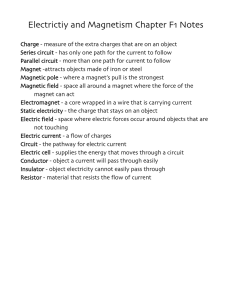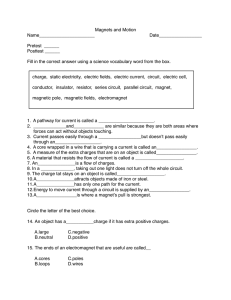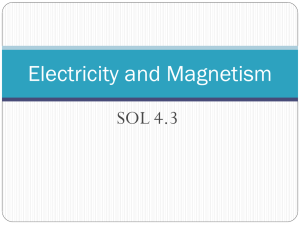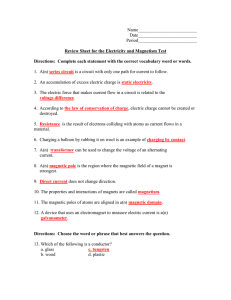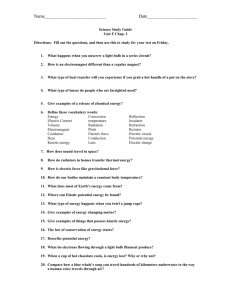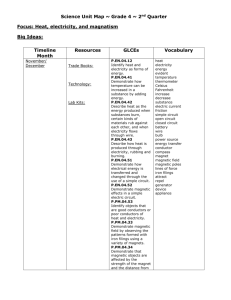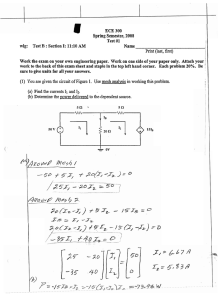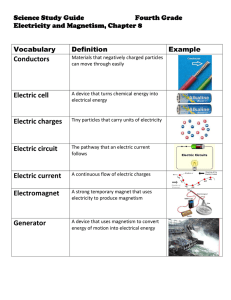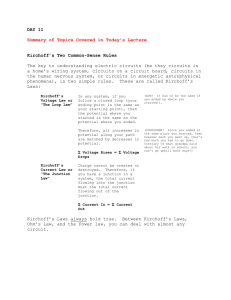Magnets and Motion Name______________________!! ! Date_________________
advertisement
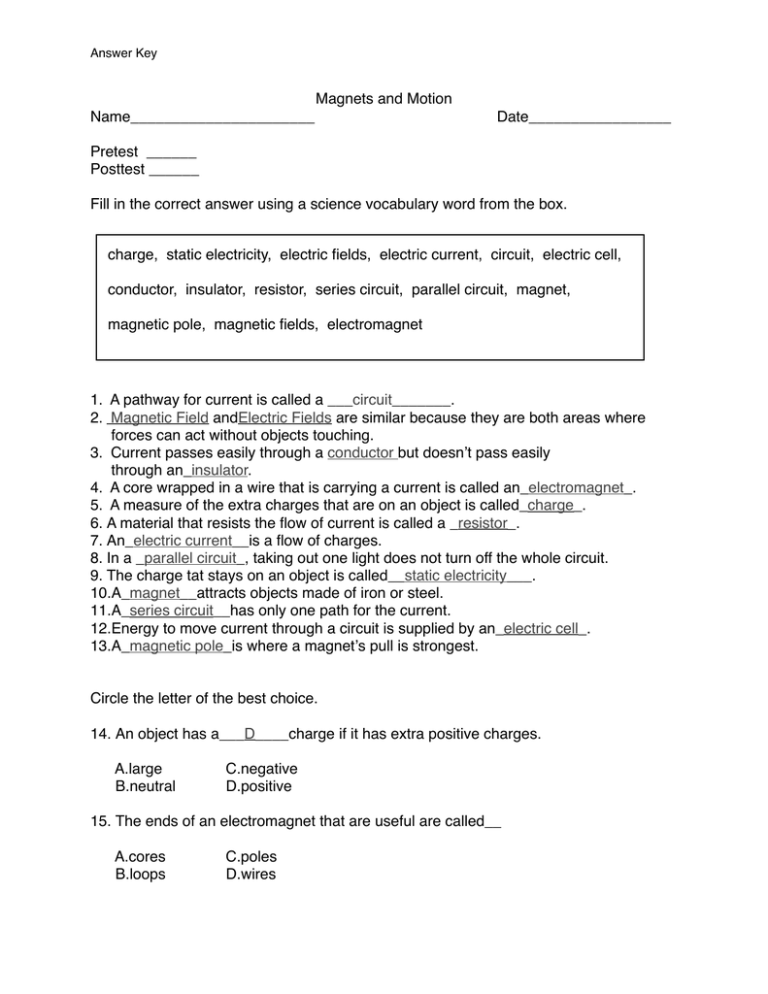
Answer Key Magnets and Motion Name______________________!! ! ! ! Date_________________ Pretest ______ Posttest ______ Fill in the correct answer using a science vocabulary word from the box. charge, static electricity, electric fields, electric current, circuit, electric cell, conductor, insulator, resistor, series circuit, parallel circuit, magnet, magnetic pole, magnetic fields, electromagnet 1. A pathway for current is called a ___circuit_______. 2. Magnetic Field andElectric Fields are similar because they are both areas where forces can act without objects touching. 3. Current passes easily through a conductor but doesnʼt pass easily through an_insulator. 4. A core wrapped in a wire that is carrying a current is called an_electromagnet_. 5. A measure of the extra charges that are on an object is called_charge_. 6. A material that resists the flow of current is called a _resistor_. 7. An_electric current__is a flow of charges. 8. In a _parallel circuit_, taking out one light does not turn off the whole circuit. 9. The charge tat stays on an object is called__static electricity___. 10.A_magnet__attracts objects made of iron or steel. 11.A_series circuit__has only one path for the current. 12.Energy to move current through a circuit is supplied by an_electric cell_. 13.A_magnetic pole_is where a magnetʼs pull is strongest. Circle the letter of the best choice. 14. An object has a___D____charge if it has extra positive charges. A.large! ! B.neutral! ! C.negative D.positive 15. The ends of an electromagnet that are useful are called__ A.cores! ! B.loops! ! C.poles D.wires Answer Key 16. How many poles does a magnet have? A.none! ! C.two B.one! ! D.four 17. What supplies energy in an electric circuit? A.conductors ! C.resistors B.electric cells! D.switches 18. If the electric field of two charged objects form a closed patter of field lines, the lines, the objects are____________charged. A.negatively ! B.positively ! C.neutrally D.oppositely Complete the drawing of the bar magnet by labeling the poles and drawing the magnetic lines of force around the magnet.
